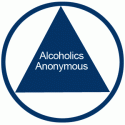How Christian Alcohol Treatment Centers Restore Faith
Faith-based organizations continue to meet vital social needs within communities across the country. According to the Manhattan Institute, faith-based organizations contribute an estimated $20 billion in private funding to social service agencies on an annual basis. With alcoholism a continuing social problem within the U.S., Christian alcohol treatment centers offer a multi-faceted treatment approach to addiction that places as much emphasis on a person’s spiritual development as on the physical and mental parts of the recovery process.
Christian alcohol treatment centers emphasize the importance of faith within every area of a person’s life, and most especially as a means to living an alcohol-free lifestyle. By integrating spiritual development into the physical and mental recovery process, Christian alcohol treatment centers can treat the whole person using an “inside-out” approach.
Physical Recovery vs. Spiritual Recovery

Christian alcohol treatment centers use a persons spiritual beliefs to help them overcome their alcohol addiction.
For many people, emotional pain and a loss of hope drive a person to alcoholism as a way to escape from life’s disappointments. While there are no scientific measures to determine the impact of emotional pain or loss of hope, these influences no doubt reach deep inside the heart and will of the individual.
Christian alcohol treatment centers view the spiritual aspect of addiction in much the same way as traditional treatment centers view the physical and mental aspects of addiction. From this standpoint, the recovery process works to promote healing on a spiritual level as well as address the physical and mental aspects of alcoholism.
While many traditional treatment centers do incorporate God within a 12-step recovery approach, Christian alcohol treatment centers apply Bible-based Christian principles within every aspect of the treatment process.
Faith-Based 12-Step Approach
Traditional 12-Step programs recognize the importance of acknowledging a higher power’s influence in a person’s life. Christian alcohol treatment centers specifically identity this higher power as the God of the Bible as opposed to a personal understanding of God or “god as you understand god to be.”
As much of the Christian religion is based on faith in God and faith in the sacrifice of Jesus Christ, Christian alcohol treatment centers combine the 12-Step program approach with the Bible’s teachings on faith and healing. Through these teachings, spiritual healing and the ability to start a new life begin to take shape within the heart and mind of the recovering alcoholic. Combined with needed medical treatments and faith-based therapy work, a person is able to reconnect with self and draw from the type of strength and guidance a Christian framework can provide.
Spiritual Healing
As hectic as life has become in this era of advanced technology, maintaining a spiritual center can easily get lost in the fray. When alcohol takes over a person’s life, it’s all but impossible to maintain a connection with one’s spiritual core. Christian alcohol treatment centers help recovering alcoholics find the type of spiritual healing that reconnects them with their faith in God.
By using Christian principles to help deal with the problems that drives a person to drink, Christian alcohol treatment centers offer the types of coping skills and supports needed to maintain sobriety for a lifetime.
Resources:
Manhattan Institute
http://www.manhattan-institute.org/pdf/crrucs_objective_hope.pdf

